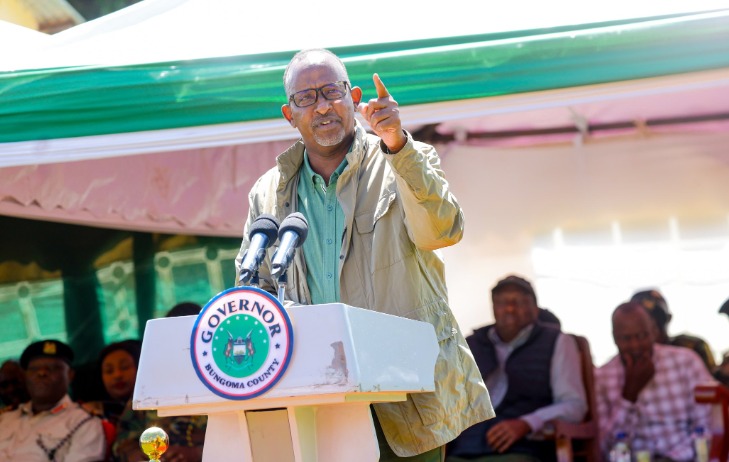
Environment Cabinet Secretary Aden Duale has rooted for the empowerment
of refugees and host communities, particularly around Dadaab and Kakuma camps, to
engage in environmental conservation efforts.
Duale said there is need to engage both refugee
and host communities in reforestation, water conservation, and soil management.
“We also need capacity-building programmes to equip refugees
and host communities with skills in sustainable agriculture, agroforestry, and
environmental management can reduce pressure on local resources,” Duale said.
Duale made the remarks on Friday during a high-level refugees stakeholders’ forum in Mombasa.
National Assembly’s Departmental Committee on Regional
Development convened the meeting.
The committee, led by Peter Lochakapong visited Dadaab and
Kakuma refugee camps in the last two weeks, on a fact-finding mission.
Members assessed refugee conditions, relevant stakeholders
and host community affairs at both camps and settlements in order to inform a
report that is to be tabled in the National Assembly.
Lochakapong noted that Kenya has hosted refugees for more
than 30 years, yet an environmental, social and political impact assessment is
yet to be carried out by the National Assembly.
Duale said the forum is pertinent as Kenya continues to be a
place of refuge for those fleeing conflict, persecution, and hardship across
our borders.
He assured that his ministry is committed to ensuring that
its policies address the specific needs and vulnerabilities of refugee populations,
fostering inclusion and resilience in ways that also protect the environment.
He added that the ministry will continue to support
legislative and regulatory frameworks that enable the sustainable management of
resources within refugee-hosting regions.
“By integrating renewable energy solutions, supporting
community-led conservation, and fostering socio-economic opportunities, we can
reduce environmental pressures, mitigate conflicts over resources, and build
stronger, more cohesive communities,” he said.
Duale noted that refugees and host communities alike often
depend on firewood as a primary energy source.
“This reliance on biomass not only depletes forests but also
contributes to indoor air pollution and increased health risks among these
populations, especially women and children who are most often tasked with fuel
collection,” he stated.
He said it has become urgent to find sustainable solutions
that reduce the environmental impact of refugee settlements while promoting
inclusive development for all.
